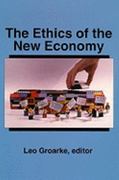Question
1) How do economic costs of production differ from accounting costs? a. Accounting costs are always larger than economic costs. b. Economic costs add the
1) How do economic costs of production differ from accounting costs?
a. Accounting costs are always larger than economic costs.
b. Economic costs add the opportunity costs of a firm using its own resources while accounting costs do not.
c. Economic costs include expenditures for hired resources while accounting costs do not.
d. Accounting costs include expenditures for hired resources while economic costs do not.
2) Firms in perfectly competitive industries are unable to control the prices of the products they sell and earn a profit in the long run because
a. firms from other countries are able to produce similar products at lower costs.
b. firms in perfectly competitive industries can use advertising in the short run to persuade consumers that their products are better than those of other firms. But eventually consumers realise that all of the firms sell virtually identical products.
c. firms in these industries sell identical products.
d. owners of perfectly competitive firms realise that their short-run profits are temporary. Therefore, they either sell their businesses or develop other products that will earn short-run profits.
3) A perfectly competitive firm has to charge the same price as every other firm in the market. Therefore, the firm
a. is not able to make a profit in the short run.
b. faces a perfectly inelastic demand curve.
c. faces a perfectly elastic supply curve.
d. is a price taker.
4) Which of the following is a characteristic shared by a perfectly competitive firm and a monopoly?
a. Each maximises profits by producing a quantity for which marginal revenue equals marginal cost.
b. Each must lower its price to sell more output.
c. Each maximises profits by producing a quantity for which price equals marginal cost.
d. Each sets a price for its product that will maximise its revenue.
5) A firm that is the only seller of a good or service that does not have a close substitute is called
a. A monopoly
b. a price maker.
c. a market maker.
d. an oligopolist.
6) A monopolistically competitive firm will ___.
a. always produce at the minimum efficient scale of production
b. charge the same price as its competitors do
c. have some control over its price because its product is differentiated
d. produce an output level that is productively and allocatively efficient
7) When a monopolistically competitive firm cuts its price to increase its sales, it experiences a gain in revenue due to the ___.
a. substitution effect
b. price effect
c. income effect
d. output effect
8) An oligopolistic industry is characterised by all of the following except ___.
a. the possibility of reaping long-run economic profits
b. firms pursuing aggressive business strategies, independent of rivals' strategies
c. production of standardised products
d. existence of entry barriers
9) Which of the following is true in an oligopoly market?
a. Individual firms pay no attention to the behaviour of other firms.
b. One firm's pricing decision affects all the other firms.
c. Advertising of one firm has no effect on all other firms.
d. The pricing decisions of all other firms have no effect on an individual firm.
10) If a perfectly competitive firm achieves productive efficiency, then
a. it is producing the good it sells at the lowest possible cost.
b. the price of the good it sells is equal to the benefit consumers receive from consuming the last unit of the good sold.
c. it will raise its price in order to earn an economic profit.
d. it is producing at minimum efficient scale.
Step by Step Solution
There are 3 Steps involved in it
Step: 1

Get Instant Access to Expert-Tailored Solutions
See step-by-step solutions with expert insights and AI powered tools for academic success
Step: 2

Step: 3

Ace Your Homework with AI
Get the answers you need in no time with our AI-driven, step-by-step assistance
Get Started


